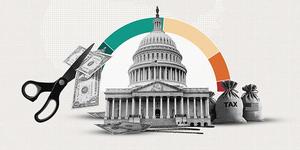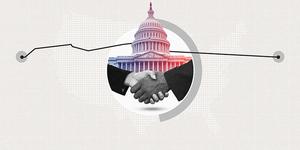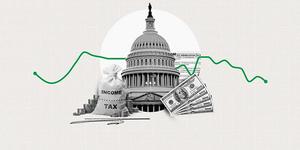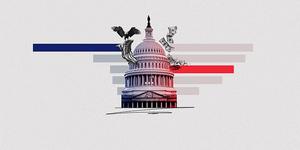Federal Budget Deficit
Access Crucial Data for Your Research
Search, examine, compare and export nearly a century of primary data.
Search, examine, compare and export nearly a century of primary data.

Americans favor spending cuts over tax hikes to reduce the deficit, although a majority of U.S. adults support taxing the wealthy to raise revenue.

Americans continue to prefer having leaders in Washington who compromise to get things done over those who stand firmly on principle.

The 46% of U.S. adults who say their income taxes are fair essentially matches the record-low 45% from 1999.

Americans who name the government as the nation's top problem have widely differing explanations, depending on their political identity.
Gallup https://news.gallup.com/poll/147626/Federal-Budget-Deficit.aspx
Gallup World Headquarters, 901 F Street, Washington, D.C., 20001, U.S.A
+1 202.715.3030